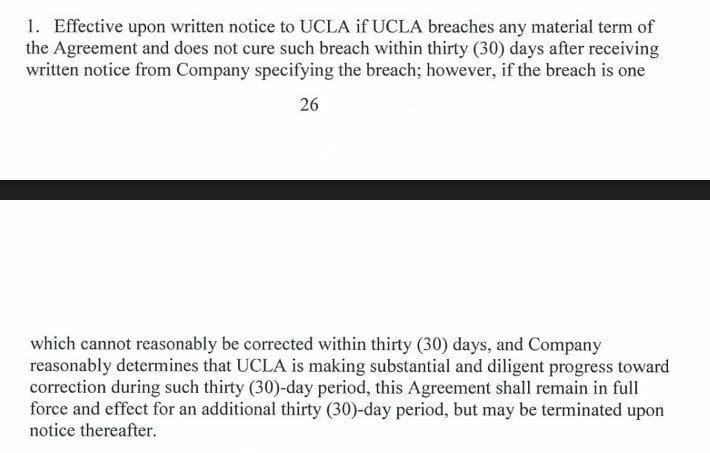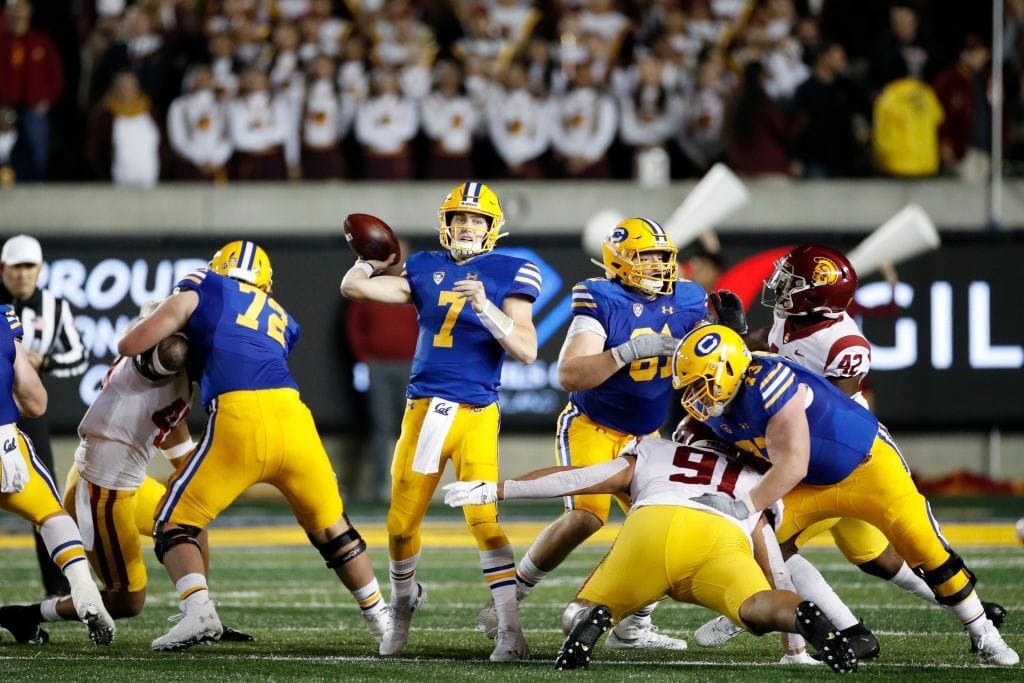(Photo credit: Getty Images)
Good morning, and thanks for spending part of your day with Extra Points.
A few quick notes:
We’re running low on our sticker stock, so if you’re looking to have FOIA SAXA grace your laptop, water bottle, or other stickerless-surfaces, now is a great time to pull the trigger. Both stickers are just $5 dollars. They also come free with a $150/year annual subscription.
We’re also selling three great t-shirts, thanks to our friends at Homefield Apparel. They’re super soft, comfortable, and show the world how much you love independent college athletics journalism. You can grab your own shirt here.
We love selling merch, but this is a reader supported enterprise. Well over 90% of all of our revenue comes from paid subscriptions. A paid subscription gives you four newsletters a week, plus bonus audio content.
You can subscribe for just $7/mo, or $70/year, right here. And if you’re interested in bulk subscriptions...for your sports management class, your athletic department, your newsroom or more, drop me an email at [email protected], and I’ll be happy to help you out with a big discount.
Now, let’s talk a little about Under Armour
Last month, we wrote about Under Armour having a problem.
Several years ago, when the company was flush with cash, they overpaid to beat out Nike and Adidas for university sponsorship agreements, particularly out west. Now, in leaner economic times, they want out of some of those deals. Specifically, they want out of their contracts with UCLA and Cal. Combined, those deals are worth over $200 million dollars.
Thanks to some intrepid reporting from Jon Wilner at the San Jose Mercury News, we have a better idea as to how exactly Under Armour plans to extract themselves from their contract with Cal.
Sure, Under Armour plans to make an argument based on force majeure. But they’re apparently making another claim to bolster their argument. Via the Mercury News:
In a notice of termination issued by Under Armour in June, the company makes two breach-of-contract claims against the Bears:* The first invokes force majeure (i.e, the ‘act of God’ clause) and asserts that Cal failed to fulfill contractual obligations to Under Armour because of the cessation of college sports during the coronavirus pandemic.* The second claim focuses on the sale, by a third-party operator, of $591.68 of apparel from Cal’s long-gone days as a Nike client.That’s right: Hundred dollars worth of out-of-date swag is, according to Under Armour, grounds to terminate a $58 million partnership
Wait, could $600 bucks of outdated really be enough to scuttle this entire deal?
Joshua Gordon, a sports law professor and arbitrator for the Court of Arbitration for Sport in Switzerland, certainly doesn’t think so. Here’s what he told Jon Wilner:
“Given the length of the deal, Under Armour’s strategy comes across as disingenuous…{Under Armour} is overreaching here and taking a strong-arm approach that seems ill-advised even if their goal is to try to negotiate an end to an agreement they now regret.”
Sam Ehrlich, a professor at Boise State’s College of Business that specializes in sports law, agreed with that assessment, telling me that “it seems pretty clear that the ~$500 in Nike merch from Fanatics is just an excuse to exit the contract; there's no possible way anyone could see that as a material breach of an exclusivity clause. They may not see the force majeure clause as good enough, so the $500 in Nike merch is just throwing stuff against the wall to see if it sticks.”
Now, why wouldn’t force majeure be enough to invalidate the contract?
After all, there were no spring sports at Cal, and there won’t be a football season either. On the surface, those sound like the sort of extenuating circumstances that might at least trigger a renegotiation.
Ehrlich told me he hasn’t specifically seen the Cal contract, but said that “I have seen a surprising amount of force majeure clauses that don't cover pandemics”, an observation we noticed as well, after looking at college football game contracts. He also noted that a force majeure argument might be more difficult, since Under Armour isn’t trying to get out of all of their FBS contracts, just a few that look like overpays. Ehrlich told me Cal might say, “It's not impossible/impractical for you to complete the deal given that you're being super selective with which schools you're cancelling on.”
Even if they succeed in canceling their deals with UCLA and Cal, Under Armour still has plenty of other contracts with FBS institutions. They just re-upped with Texas Tech, and have not reported any plans to terminate agreements with other major brands, like Notre Dame, Auburn, or Wisconsin, or any of their smaller FBS contracts, like with Georgia State. If the cancellation of spring or fall inventory was that ruinous to their business, perhaps they’d try to revisit the rest of those contracts?
There’s also the tiny problem of Under Armour reportedly not even signing a real contract?
The two sides signed a “term-sheet” agreement, which is included in Wilner’s story. But that term sheet isn’t a full contract, and for whatever reason, both parties never got around to signing a new one.
This unusual development is at the heart of the dispute. Under Armour believes the unsigned contract stands as a binding document; Cal views the term sheet as binding.There’s good reason for both positions:The term sheet does not include a force majeure clause; if it stands as the binding document, then there’s no clause for the university to have breached.
Under Armour has signed other contracts, and many of those contracts do, in fact, have specific force majeure clauses. Here’s how force majeure is defined in Under Armour’s contract with UCLA, for example:

And here’s what Under Armour’s Termination Clause looks like, again, in their contract with UCLA":

The UCLA contract is by far a bigger priority for Under Armour to extract themselves from, and it looks like they won’t be able to use their same legal strategy that they’re using with Cal. But if Under Armour is willing to try and find a little $600 mistake somewhere as grounds to rip the whole thing up, I think it’s safe to assume they’re looking even harder for any kind of misplaced comma they could hold up as justification for ending their deal with the Bruins.
It’s hard to see how anybody really wins here, especially in the short term, except for the lawyers
My assumption was that Under Armour was simply using these claims to force Cal to come to the negotiating table. If that assumption is correct, Cal doesn’t appear to be thrilled about it. Again, via Wilner’s story:
In her response to Under Armour’s move, deputy campus counsel Julie Conner makes the university’s position clear:
“Assuming that your (termination notice) was a negotiating strategy to bring Cal to the table to reevaluate the terms of the Letter Agreement, it was sorely misplaced.”
Cal and UCLA both have strong reasons to heavily fight back against Under Armour. Both athletic departments were facing cash flow problems even before COVID-19, and without a fall football season, their immediate financial projections are going to look much worse. Without ticket revenue, and potentially without broadcast revenue, both departments need every dollar they believe a vendor owes them. If they feel that Under Armour is not negotiating in good faith, those battles will get even uglier for both parties.
My guess is that eventually, Under Armour will pay some sort of settlement and extract themselves from both contracts, and Cal and UCLA will sign new deals (for less money) with either Nike or Adidas. But if you’re a college athletic department looking to hit the apparel marketplace soon, does reading any of this make you more excited about potentially doing business with Under Armour? Does this sound like a safe, secure long-term partnership?
Under Armour can still have a profitable niche in the college apparel industry if they never sign another power conference university again. There are plenty of FCS, D-II and D-III schools that have apparel needs, after all, and Under Armour sells lots of other stuff besides licensed college apparel. But it’s hard to see how this hardball approach with UCLA and Cal won’t severely damage their ability to compete for the business of larger programs.
That goes for just about any industry that is looking to extract themselves from long-term commitments with athletic departments, from food and beverage, to multimedia rights, to sponsorship. Everybody needs to save money but, but the world of college sports isn’t that big. This is a relationship business, and schools talk to each other. Administrators will hold grudges against vendors who try to put the screws to them now.
Shortsighted decisions are what got just about everybody, from schools to vendors, in this financial mess. As badly as they want to clear up the books in the short term, businesses need to make sure that they’re not nuking their future business as they try to salvage some savings now.
Thanks again for spending part of your day with Extra Points. Story ideas, mailbag questions, business inquiries, leaked documents and more can be sent to [email protected], or to @MattBrownEP on Twitter.

The Intercollegiate and Extra Points are proud to partner with the College Sport Research Institute, an academic center housed within the Department of Sport and Entertainment Management at the University of South Carolina. CSRI’s mission is to encourage and support interdisciplinary and inter-university collaborative college-sport research, serve as a research consortium for college-sport researchers from across the United States, and disseminate college-sport research results to academics, college-sport practitioners and the general public. You can learn more by visiting CSRI’s website.


















